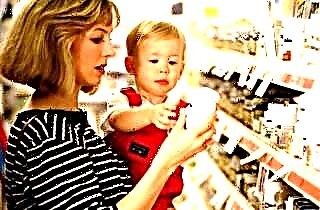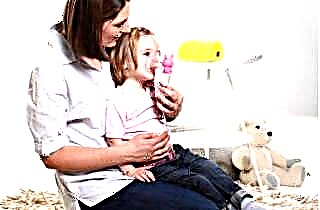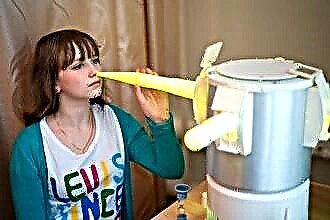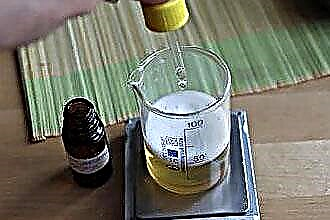It is normal for a child to have a cough in the first two weeks after suffering a respiratory illness. It is called residual and helps the body to quickly clear the mucus accumulated during the illness. But if the cough lasts a month, and the coughing up of mucus does not occur, this is a reason for contacting specialists. Perhaps he is a symptom of a serious chronic illness.
Causes of a lingering cough
 Not always a persistent cough in a child appears after ARVI or ARI. Sometimes it is not accompanied by any additional symptoms and seems to start for no reason at all. This situation should be all the more cause for concern. After all, a cough is a reflex act and by itself it cannot be a disease. This is just a symptom, and the reasons that cause it can be very different:
Not always a persistent cough in a child appears after ARVI or ARI. Sometimes it is not accompanied by any additional symptoms and seems to start for no reason at all. This situation should be all the more cause for concern. After all, a cough is a reflex act and by itself it cannot be a disease. This is just a symptom, and the reasons that cause it can be very different:
- foci of inflammation - periodically fading and renewing again;
- chronic infections - mycoplasmosis, chlamydia, etc.;
- allergic reactions - with a weak effect of an allergen, there is a constant dry cough in a child, which lasts more than one month;
- hypothermia - especially after intense physical activity in the open air;
- small foreign bodies - (grains of sand, wool, hairs, beads) can be in the respiratory tract for a long time, constantly irritating them;
- irritation of the larynx - caused by exposure to physical or chemical factors (polluted air, smoke, strong odors);
- reflux disease - severe irritation of the esophagus due to the throwing of stomach contents into it;
- psychogenic factors - severe stress, constant tension can cause laryngeal spasm and reflex cough.
Therefore, the first thing to do if a child's dry cough does not go away is to conduct a diagnostic examination and establish the exact reasons. Without this, even the most intensive course of treatment may be ineffective.
Diagnostic methods
Usually, a child's diagnostic examination begins with a thorough examination by a pediatrician. He listens to the lungs and bronchi for wheezing or other sounds characteristic of serious diseases. If in doubt, an x-ray of the lungs is prescribed  or a computed tomogram.
or a computed tomogram.
Sometimes bronchoscopy is necessary. This is not a very pleasant, but completely harmless procedure, which is carried out in a clinical setting using modern equipment. A thin tube is inserted into the bronchi, at the end of which a miniature video camera is installed. It allows you to examine in detail and assess the state of the mucous lining of the bronchi, as well as take sputum for analysis.
If a child's lingering cough is wet, then sputum analysis is simply necessary.... It allows you to identify the causative agent of the disease and simultaneously test it for resistance to various medications. This means that the doctor will be able to prescribe the most effective course of treatment.
It is necessary to collect sputum for analysis correctly. This should be done in the morning on an empty stomach. Brushing your teeth and treating your throat with medicines is also impossible - this may affect the results of the study. You just need to rinse your mouth with clean water and spit out the phlegm into a sterile glass jar with a tight-fitting lid.
If necessary, additional methods of examination can also be prescribed: blood tests, a test for tuberculosis, spirometry, etc. The importance of the examination cannot be underestimated.
Even such serious diseases as pneumonia, tuberculosis, emphysema, detected in time, can be cured or a stable remission can be achieved. And when neglected, they can be fatal.
Dry
If a child has a dry, lingering cough that is paroxysmal and does not go away for a month, the doctor may prescribe antitussive drugs. They work in different ways, so it's best not to buy them yourself. For example:
 "Tusuprex" - inhibits the cough center of the brain, suppressing the unconditioned reflex;
"Tusuprex" - inhibits the cough center of the brain, suppressing the unconditioned reflex;- "Libeksin" - makes delicate mucous membranes less sensitive to irritants;
- "Delsim" - creates a protective film on the mucous membrane of the larynx, which can prevent the occurrence of a repeated attack for a long time;
- "Robitussin" - simultaneously relieves irritation and blocks the cough center;
- Stoptussin is a combined preparation with both mucolytic and antitussive action.
In no case should you exceed the recommended dosages - this can lead to unwanted side effects.
If the infectious nature of the cough is identified, a course of antibiotic therapy is necessarily prescribed. Many mothers take this negatively. And completely in vain! New generation antibiotics have minimal contraindications and side effects, but at the same time they can completely destroy the pathogenic microflora that caused the underlying disease. And home methods can "heal" the disease and just provoke a long cough.
The only way to get rid of an allergic cough is to take antihistamines. Their constant use is undesirable. Therefore, it is very important here to identify and eliminate the allergen as soon as possible. Often it is not possible to do this on your own, especially if the symptoms usual for allergies are implicitly expressed: there are no runny nose, swelling, redness of the eyes and skin rashes. Then it is better to contact an allergist - he can prescribe tests that will help narrow the range of searches.
 Do not forget about immunomodulators. They are effective not only for acute respiratory viral infections, but also in cases where a dry cough does not go away for a long time. Usually they are also prescribed for tuberculosis, cystic fibrosis, chronic pneumonia and other diseases. The most popular are "Interferon", "Anaferon", etc. They help the body to cope with the disease faster, but at the same time do not destroy the beneficial microflora that lives in the body.
Do not forget about immunomodulators. They are effective not only for acute respiratory viral infections, but also in cases where a dry cough does not go away for a long time. Usually they are also prescribed for tuberculosis, cystic fibrosis, chronic pneumonia and other diseases. The most popular are "Interferon", "Anaferon", etc. They help the body to cope with the disease faster, but at the same time do not destroy the beneficial microflora that lives in the body.
In most cases, it is helpful to combine traditional and traditional treatments. But before doing this, it is better to consult a doctor.
Certain herbs and milk will reduce the effectiveness of antibiotics. Others enhance the effects of drugs. Rinsing, inhalation, warming up and massage will significantly speed up the healing process. With a correctly chosen course of treatment, even the most severe cough completely disappears in a maximum of a month.
Wet
A wet cough after a dry cough indicates an improvement in the situation and that the baby is on the way to recovery. In this case, the sputum leaves easily, it is transparent or milky white. Treatment should be directed towards ridding the child of mucus residues as soon as possible.
It is most advisable to use sputum-thinning and coughing-out drugs: Mukaltin, Lazolvan, Ambroxol, Herbion, Bromhexin, Alteika, etc.
It is also necessary to provide the child with:
- plentiful warm drink - it will flush mucus from the back of the larynx;
- frequent gargling - moisturizes mucous membranes, relieves inflammation and irritation;
- throat inhalation - it is better using an ultrasonic nebulizer, since under the influence of steam, sputum can swell and block the airways;
 warming up - mustard plasters, vodka compresses, rubbing with turpentine or camphor oil (to be done only in the absence of temperature!).
warming up - mustard plasters, vodka compresses, rubbing with turpentine or camphor oil (to be done only in the absence of temperature!).
Drainage massage and breathing exercises contribute well to the active discharge of sputum. It is better if a specialist shows you how to do it correctly.The course of treatment should be at least 7-10 procedures, which must be performed daily. All this time, the baby must be warm, otherwise a passing cough may worsen again.
Bed rest at normal and slightly elevated temperatures is no longer necessary, but noisy and too active games are best avoided. When the child moves, the lungs and bronchi are cleared faster than when the body is in a horizontal position. Therefore, it is not necessary to forbid him to play in bed while sitting and move around the room. Of course, severe overwork should not be allowed - it is necessary to gently return the baby to bed in time.
Prevention measures
The best prevention of cough is a wisely structured daily routine, no stress, and proper nutrition. Children more than adults need stability and a sense of security. And even more so if the child is sick. Thus, it will be possible to eliminate the long cough caused by stress factors in the child, improve his general condition and mood.
Simple preventive measures that must be followed constantly will not allow the cough to drag on for a month or more:
- keep the optimal temperature regime in the room where the child is located - 18-22 degrees, regularly ventilate him;
 monitor the humidity of the air, if necessary, use a humidifier, or better an ozonizer;
monitor the humidity of the air, if necessary, use a humidifier, or better an ozonizer;- temper the baby from the very first days of life - do massage, gymnastics, rubdown, water procedures;
- choose clothes in accordance with weather conditions - overheating is just as harmful as hypothermia;
- provide the child with vitamins, minerals and trace elements, if it is not possible to do this with food - give multivitamin preparations;
- walk with him every day in the fresh air, away from gas-polluted roads and actively flowering plants;
- remove from the baby's room substances that cause irritation and inflammation of the larynx: household chemicals, perfumes, ashtrays.
During periods of mass illness with acute respiratory diseases, one should try not to visit places with a child where a large number of people gather, and before sending him to a child care facility, carefully smear the nose with oxolinic ointment - it will not allow infections to penetrate deep into the respiratory tract.
If the child's persistent cough does not go away for a long time, it is important not to start it. When you cannot cope with it on your own in 3-4 weeks, an examination is necessary. When, after the treatment, the cough returns again, a second examination and so on until an accurate diagnosis is established. In childhood, there are great chances of completely curing even serious chronic diseases, but every year they decrease. This is why it is so important not to waste time.

 "Tusuprex" - inhibits the cough center of the brain, suppressing the unconditioned reflex;
"Tusuprex" - inhibits the cough center of the brain, suppressing the unconditioned reflex; warming up - mustard plasters, vodka compresses, rubbing with turpentine or camphor oil (to be done only in the absence of temperature!).
warming up - mustard plasters, vodka compresses, rubbing with turpentine or camphor oil (to be done only in the absence of temperature!). monitor the humidity of the air, if necessary, use a humidifier, or better an ozonizer;
monitor the humidity of the air, if necessary, use a humidifier, or better an ozonizer;

